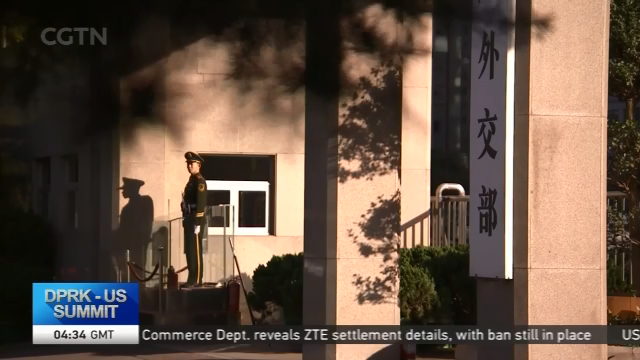
13:21, 12-Jun-2018
Trump, Kim in Singapore: China's efforts in DPRK nuclear issue
02:03

China, as a key player in northeast Asia, has a significant role in resolving the Korean Peninsula nuclear issue. Let's take a look at the diplomatic efforts China has made through the years.
China has played a major role in bringing relevant parties to the negotiating table, having advocated from the very beginning for dialogue as the only viable path to settlement.
It all started in 2003 when the DPRK withdrew from the Nuclear Nonproliferation Treaty, an international agreement aiming to prevent the spread of nuclear weapons.
In August 2003, the first-ever meeting between representatives of six countries, namely China, Russia, Japan, the US, the DPRK and South Korea was held in Beijing, seeking a resolution to skyrocketing tensions.
Beijing, as the host of the six-party talks, said it hopes to see a denuclearized, peaceful and stable Korean Peninsula, and called on all related parties to offer necessary support during the process.
The DPRK pulled out of the talks on April 14th, 2009, and announced that it would resume its nuclear program.
The first of Pyongyang's nuclear tests took place on October 9th, 2006. The move triggered swift international condemnation. On the same day, China said it "firmly opposes" the DPRK's acts, slamming the test as "flagrant and brazen" and calling on Pyongyang to honor the denuclearization commitment it made during the six-party talks.
China moved to tighten the economic noose on Pyongyang over its continued nuclear and ballistic missile programs in 2017, implementing new UN sanctions.
Further assisting in the efforts to resolve the crisis, the Chinese government proposed the "double suspension" and "dual-track" approach, which respect the concerns of all related parties.

SITEMAP
Copyright © 2018 CGTN. Beijing ICP prepared NO.16065310-3
Copyright © 2018 CGTN. Beijing ICP prepared NO.16065310-3